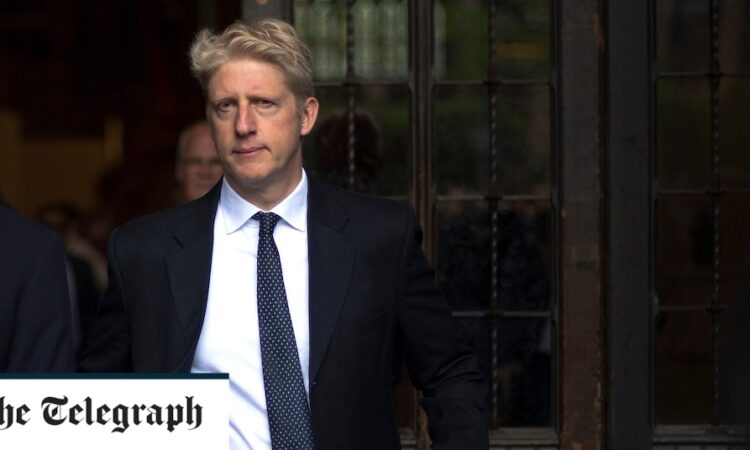
Boris Johnson’s brother Jo has been advising cryptocurrency business Binance as it struggles to launch its exchange in the UK, official records show.
Lord Johnson of Marylebone took up a role on the UK advisory board of one of Binance’s subsidiaries in September, The Telegraph can disclose.
He resigned last week as pressure grew over the transparency of Binance’s finances and amid a deepening crisis in the cryptocurrency sector.
Former universities minister Lord Johnson served as adviser to Bifinity, a payments business founded by Binance, alongside Lord Vaizey, the former digital minister, according to their Parliamentary disclosures. Lord Vaizey is also a member of Binance’s global advisory board.
The involvement of two former government ministers highlights efforts by the offshore cryptocurrency company to build legitimacy with regulators and politicians after falling foul of the Financial Conduct Authority (FCA) last year.
Binance, which is the world’s biggest cryptocurrency platform, was blocked by the FCA from launching a UK division over concerns about its transparency. The watchdog has issued three separate warnings about Binance’s activities.
The company is also facing growing scrutiny from US authorities, which are reportedly considering criminal sanctions against the company. Binance has declined to comment on the US investigation.
On Monday, when asked whether he was still working with Bifinity, Lord Johnson said he had resigned. He told The Telegraph: “I stepped down from the advisory board last week and have no role with it [or] any related entity.”
A Binance spokesman said: “Lord Johnson has recently taken on the role of executive chairman of FutureLearn. He will be focusing on his new role within the digital learning platform, and is looking to scale back other activities.”
Lord Johnson’s resignation comes amid increasing concern about crypto following the failure of FTX, which was the second biggest exchange after Binance.
The collapse has sent shockwaves throughout the cryptocurrency world as rival exchanges race to reassure customers.
Binance, which is registered on the Cayman Islands, published a report detailing its financial backing in digital coins last month, hiring auditors Mazars to conduct a “proof of reserves” report.
On Friday, however, that report was deleted and scrubbed from the web as Mazars “temporarily” paused work with cryptocurrency companies and dropped Binance as a client.
Last week, Binance endured $6bn in customer outflows from jittery traders.
Bifinity, which is headquartered in Lithuania, was launched by Binance in March this year to provide services converting traditional currencies like the pound and the dollar into digital coins. Bifinity was described as “part of the Binance Group” in a filing with US regulators in April. The filing said its sole shareholder was Changpeng Zhao, known as CZ, Binance’s chief executive.
The company provides a digital wallet for customers in the UK in a deal with payments company Skrill. Bifinity has also been working with payments provider Paysafe to provide access to Britain’s “faster payments” network.
In March, Bifinity provided funding to a UK crypto business, prompting a warning from the FCA that Binance posed a “significant risk” to British consumers.
Lord Johnson has four current directorships and eight jobs, including his Bifinity role, listed on his official Parliamentary register of interests.
His brother, the former prime minister, appeared at a conference for cryptocurrency enthusiasts in Singapore last month.
In July, Lord Vaizey told the House of Lords it was a “tragedy that the FCA is not working harder to regulate crypto companies,” according to Hansard records.
Separately, on Monday, Binance’s US division said it had reached a deal to buy the assets of a bankrupt cryptocurrency company for $1bn. Binance.US was selected as the highest and best bidder for the assets of Voyager Digital, which collapsed in July. Its assets had been due to be acquired by FTX, but that deal fell through when FTX also went bankrupt.






